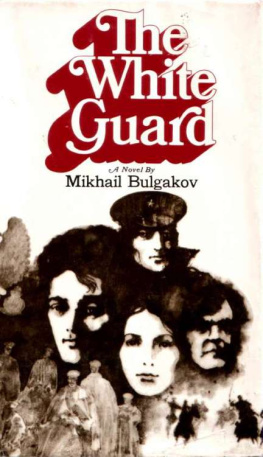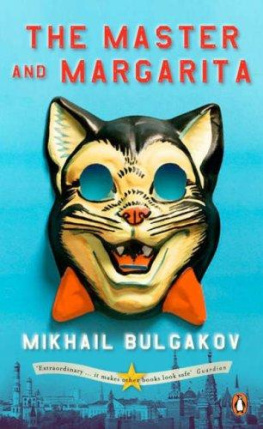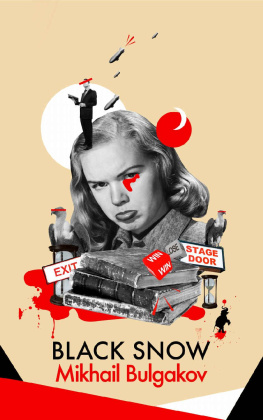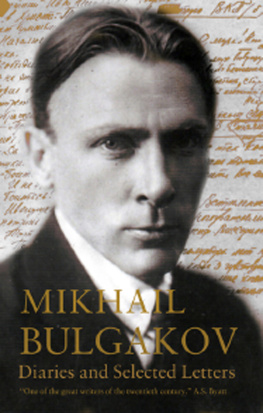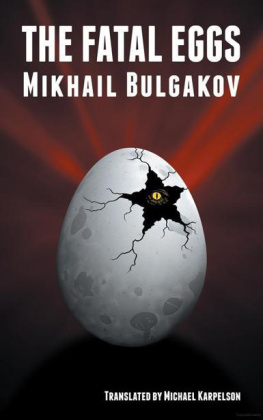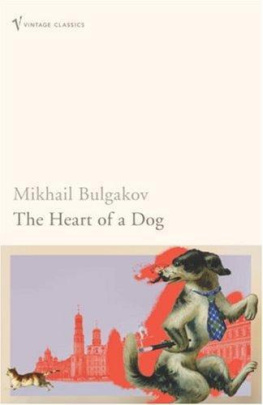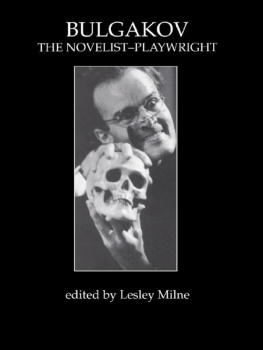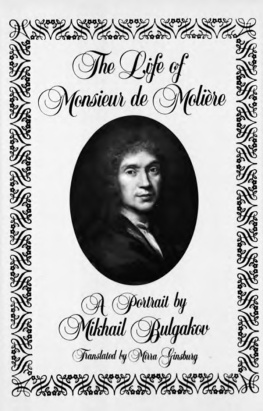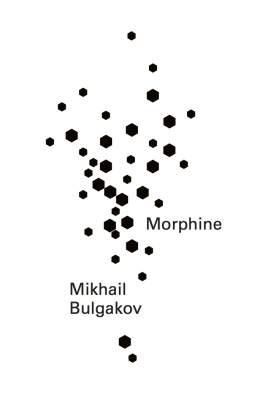Mikhail Bulgakov - The White Guard
Here you can read online Mikhail Bulgakov - The White Guard full text of the book (entire story) in english for free. Download pdf and epub, get meaning, cover and reviews about this ebook. genre: Art / Prose. Description of the work, (preface) as well as reviews are available. Best literature library LitArk.com created for fans of good reading and offers a wide selection of genres:
Romance novel
Science fiction
Adventure
Detective
Science
History
Home and family
Prose
Art
Politics
Computer
Non-fiction
Religion
Business
Children
Humor
Choose a favorite category and find really read worthwhile books. Enjoy immersion in the world of imagination, feel the emotions of the characters or learn something new for yourself, make an fascinating discovery.
- Book:The White Guard
- Author:
- Genre:
- Rating:4 / 5
- Favourites:Add to favourites
- Your mark:
- 80
- 1
- 2
- 3
- 4
- 5
The White Guard: summary, description and annotation
We offer to read an annotation, description, summary or preface (depends on what the author of the book "The White Guard" wrote himself). If you haven't found the necessary information about the book — write in the comments, we will try to find it.
The White Guard — read online for free the complete book (whole text) full work
Below is the text of the book, divided by pages. System saving the place of the last page read, allows you to conveniently read the book "The White Guard" online for free, without having to search again every time where you left off. Put a bookmark, and you can go to the page where you finished reading at any time.
Font size:
Interval:
Bookmark:
To Lyubov Yevgenievna Belozerskaya
A light snow was falling, which suddenly changed to thick, heavy flakes. The wind began to howl; it was a snowstorm. Within a moment the dark sky had merged with the ocean of snow. Everything disappeared.
'Looks bad, sir,' shouted the coachman. 'A blizzard!'
Pushkin The Captain's Daughter
... and the dead were judged out of those things which were written in the books according to their works ....
Revelation, XX, 12.
Having lost seven cossacks killed, nine wounded, and seven horses, Colonel Bolbotun had advanced a quarter of a mile from Pechorskaya Square, as far as Reznikovskaya Street, where he was halted again. It was here that the retreating detachment of cadets acquired some reinforcements, which included an armored car. Like a clumsy gray tortoise capped by a revolving turret it lumbered along Moskovskaya Street and with a noise like the rustling of dry leaves fired three rounds from its three-inch gun. Bolbotun immediately galloped up to take charge, the horses were led off down a side street, his regiment deployed on foot and took cover after pulling back a short way towards Pechorskaya Square and began a desultory exchange of fire. The armored tortoise blocked off Moskovskaya Street and fired an occasional shell, backed up by a thin rattle of rifle-fire from the intersection of Suvorovskaya Street. There in the snow lay the troops which had fallen back from Pechorsk under Bolbotun's fire, along with their reinforcements, which had been called up like this:
'Rrrring...'
'First Detachment headquarters?'
'Yes.'
'Send two companies of officers to Pechorsk.'
'Right away...' The squad that reached Pechorsk consisted of fourteen officers, four cadets, one student and one actor from the Studio Theater.
*
One undermanned detachment, alas, was not enough. Even when reinforced by an armored car, of which there should have been no less than four. And it can be stated with certainty that if the other three armored cars had shown up, Colonel Bolbotun would have been forced to evacuate Pechorsk. But they did not appear.
This happened because no less a person than the celebrated Lieutenant Mikhail Shpolyansky, who had been personally decorated with the St George's Cross by Alexander Kerensky in May 1917, was appointed to command one of the four excellent vehicles which comprised the Hetman's armored car troop.
Mikhail Shpolyansky was dark and clean-shaven, except for a pair of velvet sideburns, and he looked exactly like Eugene Onegin. Shpolyansky made himself known throughout the City as soon as he arrived there from St Petersburg. He made a reputation as an excellent reader of his own verse at the poetry club known as The Ashes, also as an excellent organiser of his fellow-poets and as chairman of the school of poetry known as The Magnetic Triolet. Not only was Mikhail Shpolyansky an unrivalled orator and could drive any sort of vehicle, civilian or military, but he also kept a ballerina from the Opera Theater and another lady whose name Shpolyansky, like the perfect gentleman that he was, revealed to
no one. He also had a great deal of money, which he disbursed in generous loans to the members of The Magnetic Triolet. He drank white wine, played chemin-de-fer, bought a picture called l'enetian Girl Bathing; at night-time he lived on the Kreshchatik, in the mornings he lived in the Cafe Bilbocquet, in the afternoon
in his comfortable room in the Hotel Continental, in the evening at The Ashes, whilst he devoted the small hours to a scholarly work on 'The Intuitive in Gogol'.
The Hetman's City perished three hours earlier than it should have done because on the evening of December 2nd 1918, in The Ashes club, Mikhail Shpolyansky announced the following to Stepanov, Sheiyer, Slonykh and Cheremshin (the leading lights of The Magnetic Triolet):
'They're all swine - the Hetman, and Petlyura too. But Petlyura's worse, because he's an anti-Semite as well. But that's not the real trouble. The fact is I'm bored, because it's so long since I threw any bombs.'
After dinner at The Ashes (paid for by Shpolyansky) all the members of The Magnetic Triolet plus a fifth man, slightly drunk and wearing a mohair overcoat, left with Shpolyansky, who was
dressed in an expensive fur coat with a beaver collar, and a fur hat. Shpolyansky knew a little about his fifth companion - firstly, that he was syphilitic; secondly, that he wrote atheistic poetry which Shpolyansky with his better literary connections arranged to have published in one of the Moscow literary magazines; and thirdly that the man, whose name was Rusakov, was the son of a librarian.
The man with syphilis was weeping all over his mohair coat under the electric street lighting on the Kreshchatik and saying, as he buried his face in the beaver-fur lapels of Shpolyansky's coat:
'Shpolyansky, you are the strongest man in this whole city, which is rotting away just as I am. You're such a good fellow that one can even forgive you for looking so disgustingly like Eugene Onegin! Listen Shpolyansky... it's positively indecent to look like Onegin. Somehow you're too healthy... But you lack that spark of ambition which could make you the really outstanding personality of our day... Here am I rotting to death, and proud of it... You're too healthy, but you're strong, strong as a steel spike, so you ought to thrust your way upwards to the top! Look, like this ...'
And Rusakov showed him how to do it. Clasping the lamppost he started to wind his way up it, making himself as long and thin as a grass-snake. A bevy of prostitutes walked by dressed in green, red, black and white hats, pretty as dolls, and called out cheerfully:
'Hey, had a couple too many? How about it, darling?'
The sound of gunfire was very far away and Shpolyansky really did look like Onegin in the lamp-lit snow.
'Go to bed', he said to the syphilitic acrobat, turning his head away slightly so that the man should not cough over him. 'Go on.' He gave the mohair coat a push with the tips of his fingers. As his black fur gloves touched the coat, the other man's eyes were quite glassy. The two men parted. Shpolyansky called a cab, told the driver: 'Malo-Provalnaya', and drove away, as mohair staggered home to Podol.
That night in Podol, in his room in the librarian's apartment, the owner of the mohair coat stood naked to the waist in front of a mirror, holding a lighted candle in his hand. Diabolical fear flickered in his eyes, his hands were shaking, and as he talked his lips quivered like a child's.
'Oh my God, my God, my God... It's horrible... That evening! I'm so unhappy. Sheyer was there with me too, yet he's all right, he didn't catch this infection because he's a lucky man. Maybe I should go and kill that girl who gave it to me. But what's the point? Can anybody tell me - what would be the point? Oh Lord, Lord... I'm twenty-four and I might have... Another fifteen years' time, perhaps less, and the pupils of my eyes will have changed colour, my legs will have rotted, then the lapse into mad idiotic babbling and then - I shall be a rotten, sodden corpse.'
The thin naked torso was reflected in the dusty mirror, the candle guttered in his upraised hand and there was a faint blotchy rush on his chest. Tears poured uncontrollably down the sick man's cheeks, and his body shook and twitched.
'I ought to shoot myself. But I haven't the strength - why should I lie to you, oh my God? Why should I lie to my own reflection?'
From the drawer of a small, delicate, ladies' writing-desk he took out a thin book printed on horrible gray paper. On the cover was printed in red letters:
FANTOMISTS- FUTURISTS
Verses by:
M. SHPOLYANSKY
Font size:
Interval:
Bookmark:
Similar books «The White Guard»
Look at similar books to The White Guard. We have selected literature similar in name and meaning in the hope of providing readers with more options to find new, interesting, not yet read works.
Discussion, reviews of the book The White Guard and just readers' own opinions. Leave your comments, write what you think about the work, its meaning or the main characters. Specify what exactly you liked and what you didn't like, and why you think so.

